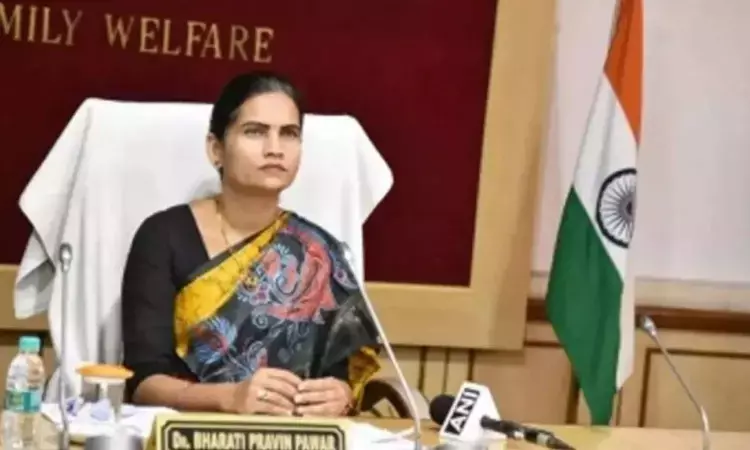- Home
- Medical news & Guidelines
- Anesthesiology
- Cardiology and CTVS
- Critical Care
- Dentistry
- Dermatology
- Diabetes and Endocrinology
- ENT
- Gastroenterology
- Medicine
- Nephrology
- Neurology
- Obstretics-Gynaecology
- Oncology
- Ophthalmology
- Orthopaedics
- Pediatrics-Neonatology
- Psychiatry
- Pulmonology
- Radiology
- Surgery
- Urology
- Laboratory Medicine
- Diet
- Nursing
- Paramedical
- Physiotherapy
- Health news
- Fact Check
- Bone Health Fact Check
- Brain Health Fact Check
- Cancer Related Fact Check
- Child Care Fact Check
- Dental and oral health fact check
- Diabetes and metabolic health fact check
- Diet and Nutrition Fact Check
- Eye and ENT Care Fact Check
- Fitness fact check
- Gut health fact check
- Heart health fact check
- Kidney health fact check
- Medical education fact check
- Men's health fact check
- Respiratory fact check
- Skin and hair care fact check
- Vaccine and Immunization fact check
- Women's health fact check
- AYUSH
- State News
- Andaman and Nicobar Islands
- Andhra Pradesh
- Arunachal Pradesh
- Assam
- Bihar
- Chandigarh
- Chattisgarh
- Dadra and Nagar Haveli
- Daman and Diu
- Delhi
- Goa
- Gujarat
- Haryana
- Himachal Pradesh
- Jammu & Kashmir
- Jharkhand
- Karnataka
- Kerala
- Ladakh
- Lakshadweep
- Madhya Pradesh
- Maharashtra
- Manipur
- Meghalaya
- Mizoram
- Nagaland
- Odisha
- Puducherry
- Punjab
- Rajasthan
- Sikkim
- Tamil Nadu
- Telangana
- Tripura
- Uttar Pradesh
- Uttrakhand
- West Bengal
- Medical Education
- Industry
2.10:1000 nurse to population ratio in India at present: MoS Health informs Lok Sabha

New Delhi: India at present has 36.14 lakh nursing personnel resulting in a nurse-to-population ratio of 2.10 nurses per thousand population which indicates a decent improvement in the nursing scenario of the country.
Moreover, there are 5203 Nursing institutions, including 715 government institutions producing nearly 3.55 lakh nursing personnel annually, to meet the requirement of nursing personnel in the country. The information was provided by the Minister of State in the Ministry of Health and Family Welfare, Dr Bharati Pravin Pawar, recently in the Lok Sabha.
MP Shri Chandra Sekhar Bellana raised a series of questions on whether the country has been able to fulfil the World Health Organization (WHO) norms of nurses to patient ratio. He also asked whether the government is taking any steps to improve the working conditions of nurses and to increase the number of nurses.
The Minister stated that government ensures adequate working conditions for all healthcare personnel, including nurses in various healthcare establishments and makes efforts to improve them. These working conditions are governed by various Acts and government orders, which are framed to provide a conducive working environment to health professionals in order to enhance patient care and contribute substantially to the overall healthcare outcomes.
She mentioned the act of “Development of Nursing Services”, under which Schools of Nursing (SoN) are given Grants-in-aid to upgrade them into Colleges of Nursing (CoN). Further, the establishment of 157 new nursing colleges has been announced in the budget speech 2023-2024. As far as increasing nursing manpower in the country is concerned, the following steps have been taken by the government:
I. The requirement of land for the School/College of Nursing and Hostel has been relaxed.
ii. Relaxation in the norms of having a 100 bedded parent hospital for hilly and tribal areas has been done.
iii. The student-teacher ratio for M.Sc.(N) programme has been relaxed from 1:5 to 1:10.
iv. Student patient ratio for Nursing Institutions has been relaxed from 1:5 to 1:3.
v. Maximum number of 100 seats for Nursing College to be given to parent hospitals with 300 beds without insisting on a Medical College.
vi. Distance from school/college to hospital relaxed.
vii. Eligibility criteria for admission for Diploma and Degree have been relaxed.
viii. Relaxation in norms for opening M.Sc. (N) programme by allowing Super Speciality Hospital to start M.Sc. (N) without having an undergraduate programme.
Sanchari Chattopadhyay has pursued her M.A in English and Culture Studies from the University of Burdwan, West Bengal. She likes observing cultural specificities and exploring new places.


